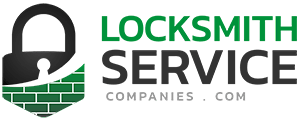Starting a locksmith business involves incurring costs for licensing, certification, specialized equipment, marketing, and insurance. Licensing and certification necessitate completing training programs, passing exams, and paying application fees that vary by state and license type. A significant portion of the budget goes towards acquiring specialized tools and equipment, requiring mastery and establishing supplier partnerships for competitive pricing. Strategic marketing planning including online and traditional methods is vital, along with securing liability coverage for financial protection in case of accidents. Each component plays an essential role in the initial investment needed to establish a successful locksmith business.
Licensing and Certification Costs
When considering the cost of starting a locksmith business, one vital aspect to account for is the expenses associated with obtaining the necessary licensing and certifications. Training requirements for locksmiths vary by state, but typically involve completing a locksmith training program and passing an exam to demonstrate competency in the field. These training programs can range from a few weeks to several months, depending on the depth of knowledge required.
In addition to training, locksmiths must also pay application fees for their licenses and certifications. These fees can vary widely depending on the state and the type of license being sought. For example, in some states, the application fee for a locksmith license may be a few hundred dollars, while in others, it could be upwards of a thousand dollars.
It is crucial for aspiring locksmith business owners to research the specific licensing requirements and associated fees in their state to accurately budget for this integral aspect of starting their business.
Equipment and Tool Expenses
An essential component of establishing a successful locksmith business is the careful consideration and investment in equipment and tools. To ensure proficiency and quality service provision, locksmiths must undergo specialized training programs to master the use of various tools and equipment. These training programs not only enhance skills but also guarantee that the tools are utilized effectively and safely.
Supplier partnerships play an important role in acquiring high-quality equipment and tools at competitive prices. Locksmith businesses should establish strong relationships with reliable suppliers to access the latest tools and technologies essential for delivering excellent services to customers. By partnering with reputable suppliers, locksmiths can benefit from discounts, bulk purchasing options, and timely updates on new products in the market.
Investing in quality equipment and tools is essential for locksmith businesses to operate efficiently and meet customer needs effectively.
Marketing and Insurance Budget
How can a locksmith business effectively allocate its budget to cover essential expenses such as marketing and insurance while ensuring long-term success and growth? When it comes to marketing, locksmiths must carefully plan their advertising strategies to reach potential customers effectively. This can include investing in online marketing, such as website optimization and targeted social media campaigns, as well as traditional methods like local advertising and networking within the community. By diversifying their advertising efforts, locksmith businesses can maximize their reach and attract a steady flow of customers.
In terms of insurance, liability coverage is vital for locksmiths to protect themselves and their clients in case of accidents or damages. This type of insurance can provide financial protection in the event of a lawsuit or claim resulting from the locksmith's services. Allocating a portion of the budget to liability coverage is a smart investment that can safeguard the business's assets and reputation in the long run.
